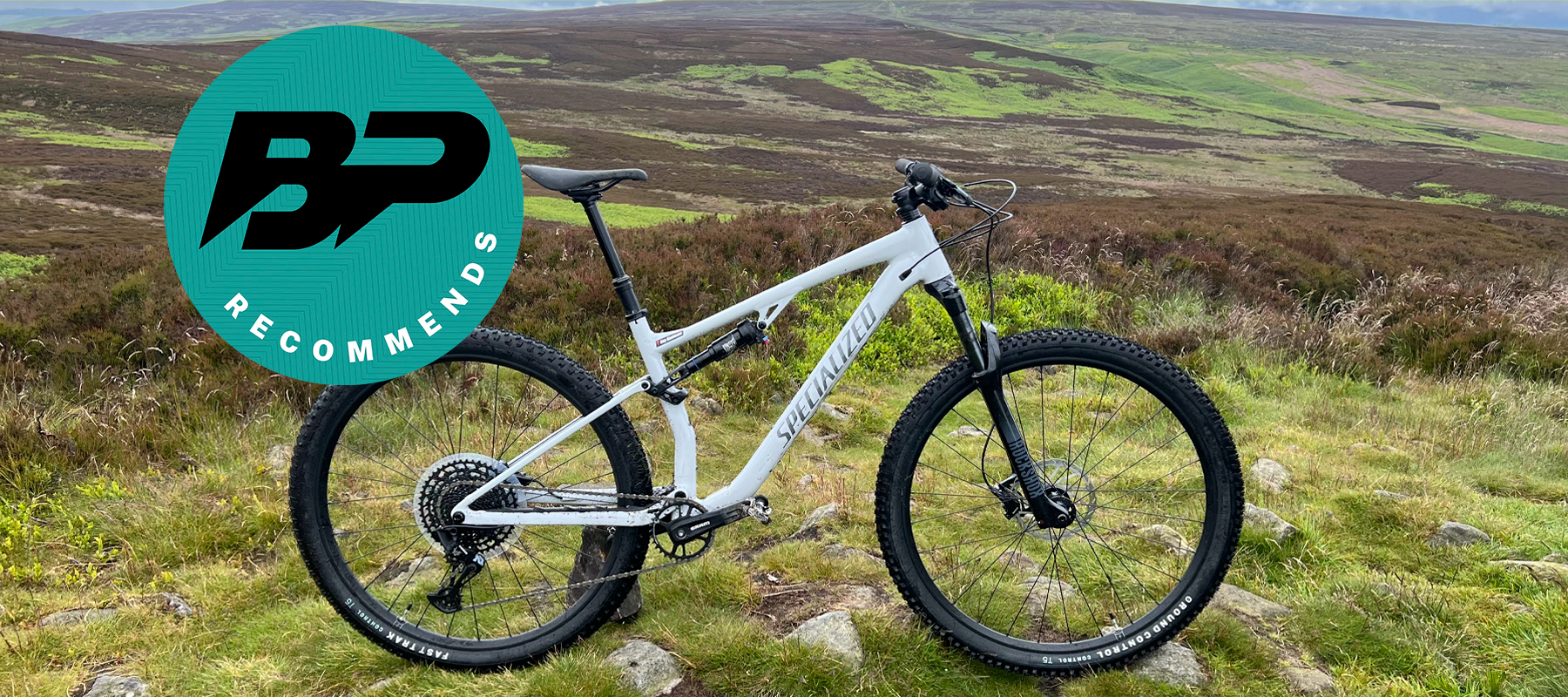Bike Perfect Verdict
Superfast, impressively light suspension bike for the cash, with excellent pedal / plush suspension balance, sorted geometry, great contact points and proper all-weather race tires.
Pros
- +
Light, lively, flowing yet accurate alloy frameset
- +
Proven XC/DC geometry
- +
Excellent pedal/plush balance
- +
Superlight, quick but grippy tires
- +
Quality contact points
Cons
- -
Basic, heavy SRAM SX based groupset
- -
Hair trigger rebound adjusters
- -
Sub 700g rear tire is fragile
- -
Keen to use all its travel
Why trust BikePerfect
Specialized has just dropped its new alloy full-suspension cross-country bike – the Chisel FS – it comes in two models, both with a bargain price tag. The standard Chisel FS comes in at $2,600 / £2,000, the Comp version is $800 / £700 more, and a frame only option costs $TBC / £1,400. Guy Kesteven has been testing the base model before today's release, here's his verdict...
Cards on the table. I’m a hyper fan of Specialized’s lightweight, ultra supple Chisel XC hardtail so I was super excited to hear about the Chisel FS. But what if basic SRAM kit or the X-Fusion shock on the cheapest of the two complete build options buried that unique SmartWeld alloy frame feel too deep? Thankfully it didn’t take me long flying round my local trails to realize that FS stood for Full Speed as well as Full Suspension, and it’s not just clever metalwork that makes this an awesome XC/DC/adventure choice at a relatively affordable price. But read on to find out why I don’t think this version is the best option.
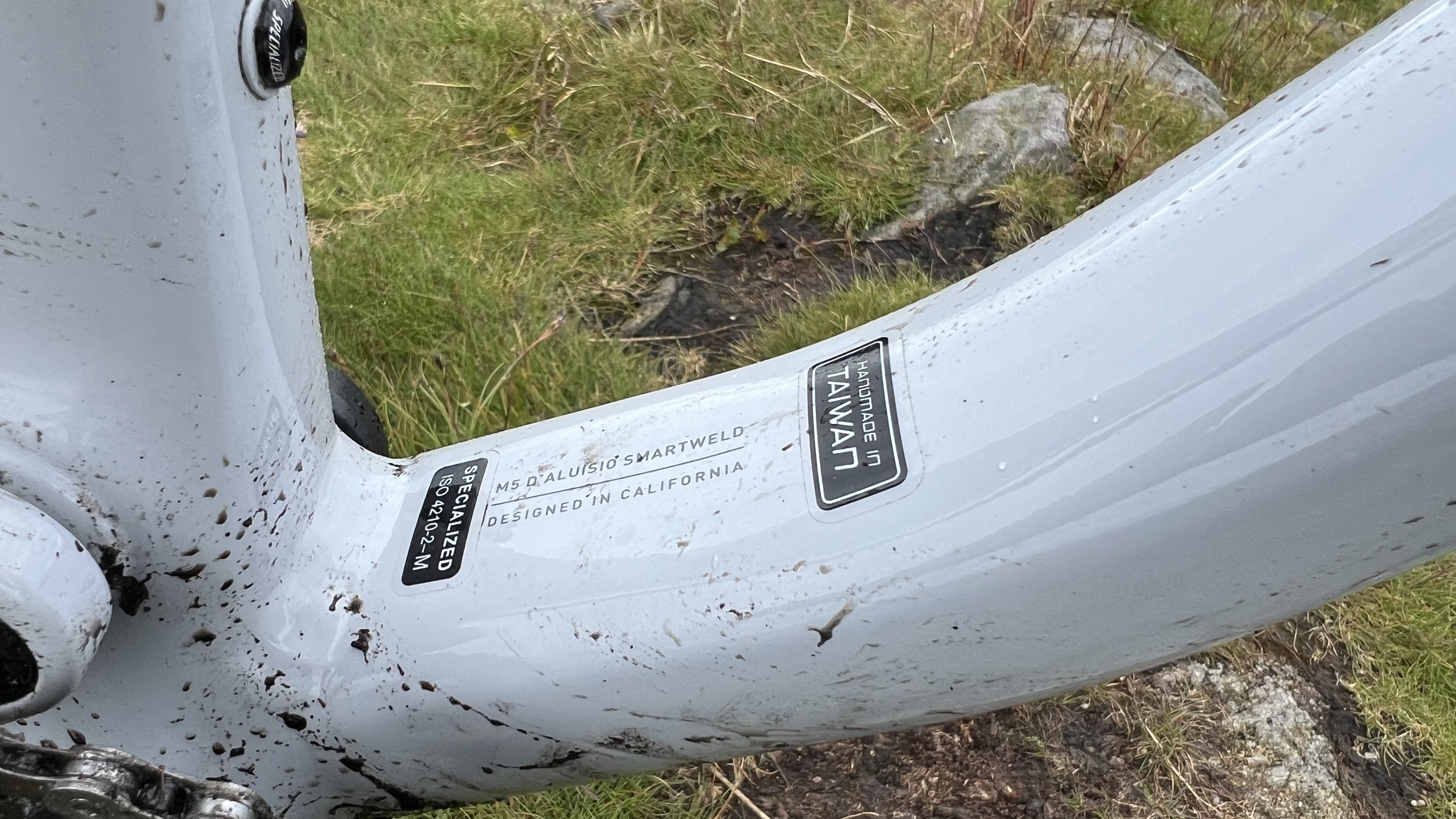
Design and geometry
The Chisel FS frame is unashamedly based on the generations of development behind the Specialized Epic and Epic Evo XC/DC frames and the profiles are essentially identical. That includes a top tube mounted, yoke driven shock with a small 'U' rocker on the seat tube and skinny flexstay rear end. The main pivot then sits vertically above the BB axle, level with the chainring top at the end of chunky chain stays with UDH hanger at the far end, rubber armor on top and a spray flap covering the cable / hose exit point behind the BB. Like the Epic, there are two bottle cage mounts inside the mainframe too.
Along with the far wallet-friendlier price tag, the difference between Epic and Chisel is that the organic-looking, tapering frame tubes are made from M5 alloy not carbon fiber. It’s Specialized’s unique ‘SmartWeld’ alloy which uses 3D hydroformed (pressure formed) tubes with semi-closed ends like a drink can. By giving the tubes extra strength at the ends and increasing the weld area Specialized can then use super thin, varying wall thickness in the rest of the tubes. This lets them manipulate ride feel and minimize mass to suit each part of the bike. For the Chisel they've gone one stage further by pressure moulding the seat tube, including upper and main pivot points and the bottom bracket shell into a single piece.
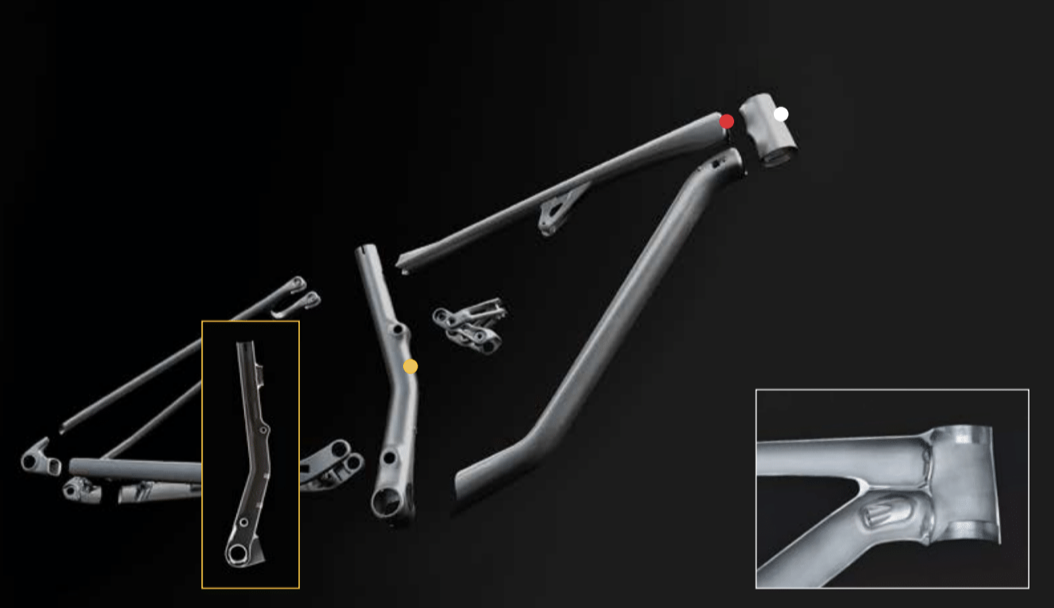
That brings the claimed Chisel medium frame, shock and fixtures weight down to just 2,720g, which is seriously impressive for an alloy full-sus frame. Especially as you still get neat hose / cable clamps on the entry points for the internal routing and a reversible rear ‘flip-chip’ mount on the rear shock to modify geometry slightly.
While some of Specialized’s PR info says geometry and suspension copy the latest Epic 8, both are more of a mix of the new Epic and the outgoing Epic Evo. Rear travel is 110mm like the old Epic Evo and the 470mm reach on the Large I tested splits the 460mm and 480mm lengths of old Epic Evo and new Epic 8. The 66.5-degree head angle is the same as the Epic Evo, but the 75.5-degree effective seat angle is that of the Epic 8, while 36mm BB drop, 438mm chainstay are templated off the older Evo (Epic 8 is fractionally lower and shorter).
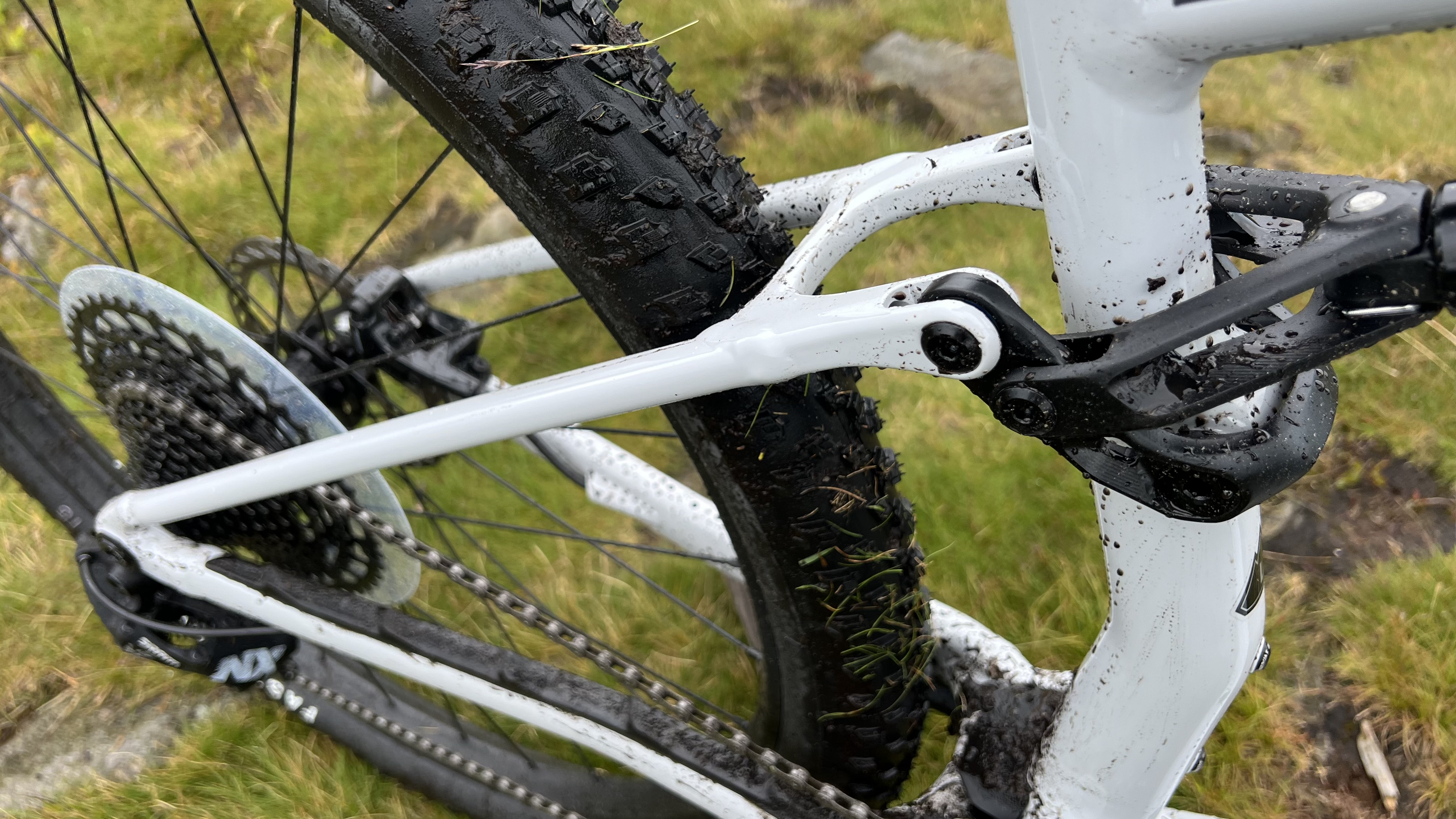
Components and build
Budget full-suspension bikes live or die by their rear shocks, so I was apprehensive to see an X-Fusion Pro-02 air can on the base model Chisel I tested, rather than the RockShox Deluxe Select+ used on the slightly more expensive Comp model. The steel-legged RockShox Recon RL Silver fork is a lot heavier than the SID fork on the Comp’s too. Both get compression and rebound adjustment though.
While the first Chisel FS models into the UK will get a Shimano spec (SLX for Comp, Deore for base model) I tested the SRAM model that will form the follow-on stock. Specialized try and distract with an NX rear mech, but it’s a majority SX fit, including heavy Powerspline internal BB, steel chainring and riveted steel 11-50T cassette. You’re still getting 12 functionally delivered gears though and all that steel should mean an excellent wear life as long as you keep rust at bay by cleaning and lubing straight after wet rides. SRAM Level T brakes are lifeless even with a 180mm front rotor, but again, they’re reliable and predictable.
Where Specialized really impress is the easy to overlook shop floor detailing that means a lot on the trail. The Specialized hubs come with oversized ‘Torque Cap’ adaptors to bolster wheel-to-fork stiffness. The TransX dropper gets a quality lever that’s mounted directly to the brake clamp. The bar and stem aren’t only the right 760mm width and 60mm length, but the narrower 31.8mm diameter makes them more forgiving than a 35mm diameter setup. Crank length (165 – 175mm) and dropper stroke (100 – 150mm) are frame size specific and Specialized grips and saddle are excellent too. Specialized’s Ground Control front and Fast Trak rear tires are a fast but trustworthy combination for rapid trail riding in all weathers. The Control casings mean they’re a superlight 720g / 690g respectively too. They come with inner tubes though so ask your shop to switch in the supplied tubeless valves before you pick your Chisel up if you want better pinch flat and sharps protection on the paper thin carcasses.
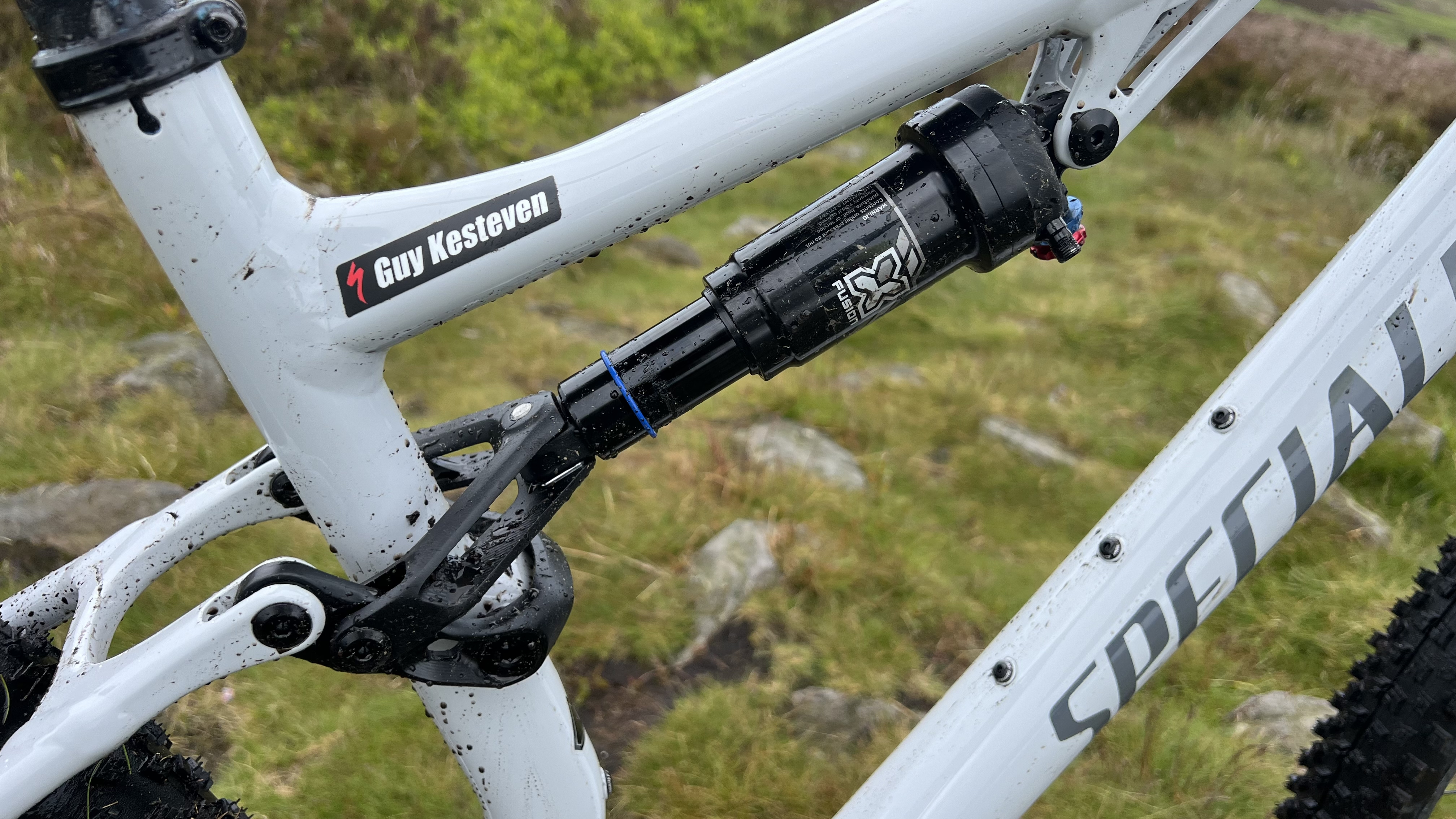
Ride, handling and performance
Steel forks and SRAM SX pulled the scales to just under 14.5kg without pedals in the workshop, which is definitely a more trail rather than XC bike mass. For cost context, it’s 500g lighter than it’s alloy framed 'DC' competitors the £2,700 Scott Spark 970 and the £3,200 Trek Fuel EX 8, while the £2,500 Merida One-Twenty 600 is almost 1.5kg heavier.
Crucially, the Chisel FS doesn’t feel heavy on the trail. In fact, with the superlight tires whipping up to speed super fast and then offering little resistance to staying there, the Specialized is a very rewarding bike to rev hard. Even the splined BB doesn’t conspiciously dampen power delivery, and while the Chisel hardtail is an ultra-fluid and flexy frame, it’s FS sibling is stiff enough for spirited sprinting and committed cornering. The suspension kinematic is really well-dialled in terms of traction and smooth float over smaller chatter – that can be slippery and fatiguing while still being uplifting and engaging when you give it full gas. I certainly didn’t feel the need to ever use the lockout lever on the rear shock, although there is one if you need it.
My worries about the shock turned out to be completely unfounded too. While budget bikes are often hamstrung by nasty, notchy suspension feel, the X-Fusion shock and flexstay setup is very smooth and mobile in action. You can feel start to get flustered if you really start charging through rocky / rooty jank for prolonged periods, and it blows through its travel on big drops, but XC comfort and consistent traction are excellent. The Motion Control damper in the Recon RL fork is a simple but tried and tested setup that’s perfectly competent until you’re pushing high speeds into high energy terrain. The rebound adjusters on both fork and shock need treating with caution though, as just two clicks one way or the other go from pogo to completely constipated, so tune with care.
As previously stated, the Level T brakes are weak at race pace and while they’re a big component in making the Chisel FS feel so light and lively, the Control carcass tires need sympathy if they’re going to survive long on sharper trails.
Video: Guy Kesteven demoing the climbing abilities of the Chisel FS
Verdict
Specialized use the phrase ‘Engineered to disappear’ in the PR for the Chisel to describe the ‘Ride Dynamics’ of the bike and for once, I totally agree. While there are unavoidable compromises in the spec in terms of weight and basic stop / go feel, I never felt like the Chisel compromised my enjoyment or riding intent. Frame feel, suspension, and tires set up a properly thoroughbred high-performance vibe that’s an absolute joy to chase high velocities on. The totally sorted geometry lets you get away with things the brakes and tires shouldn’t allow too. Quality contact points reinforce the surprisingly refined feel of the bike and it’s only when things start getting really rowdy that the basic suspension starts to betray its simpler internals. Getting a complete bike for just £550 more than the frameset only price puts that into perspective too. If I was to pick though, I’d definitely opt for the Comp spec with better fork and shock, plus Shimano SLX and while it’s £500 more, I’d probably still up the score to a 5 out of 5.
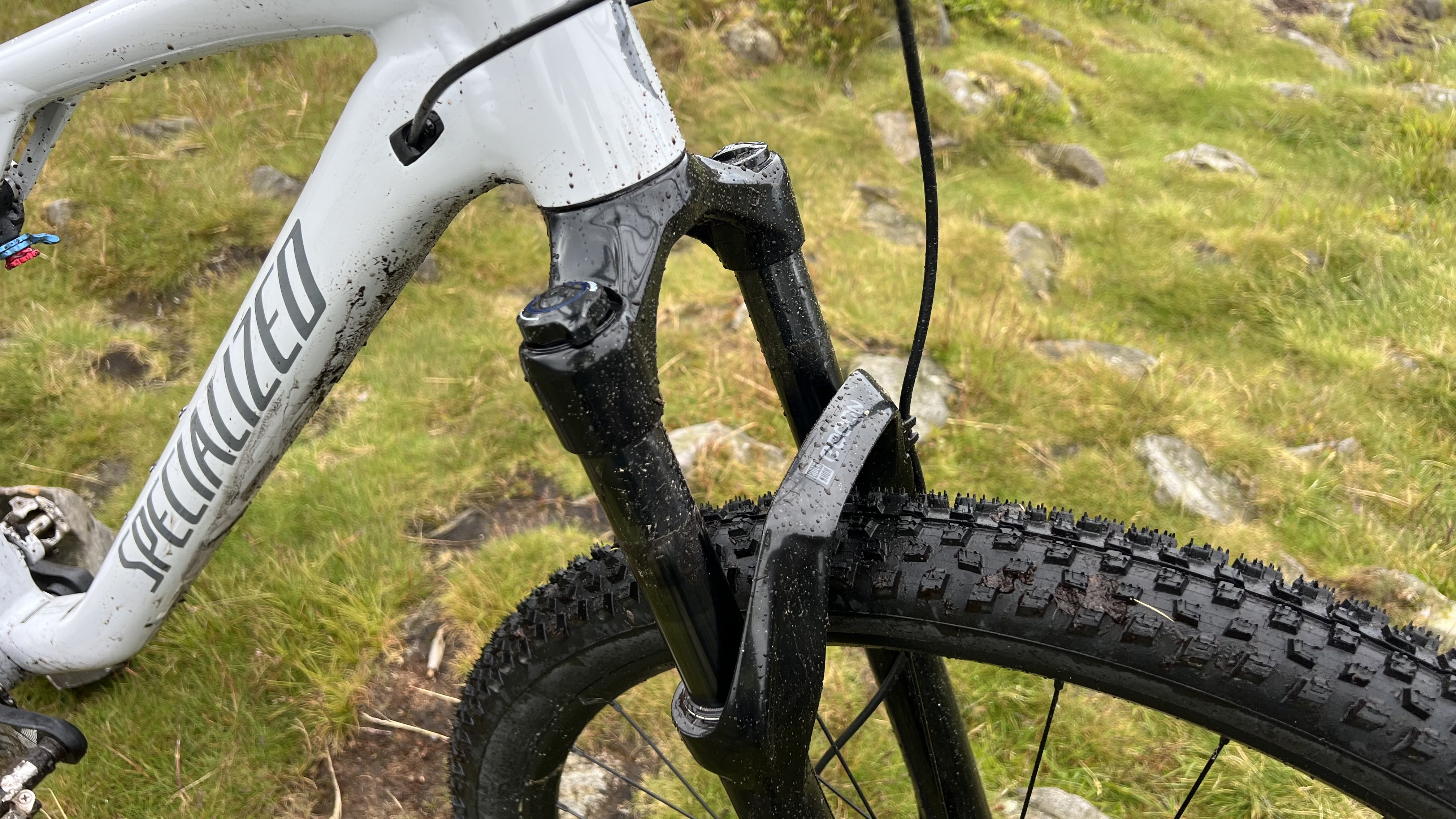
Test conditions
- Surface: Muddy moorland singletrack, loam, roots, loose rock and janky, greasy ‘not fun sized’ geology.
- Trails: Road, gravel, natural XC, official XC courses, moorland singletrack, red and blue grade trails centre and off piste play trails
| Attributes | Notes | Rating |
|---|---|---|
| Downhill performance | Great geometry but shock, fork and brakes OK not outstanding | ★★★ |
| Climbing performance | Outstandingly lively, fast and grippy for the money | ★★★★★ |
| Components and build | Excellent frame and detailing with decent base spec | ★★★★★ |
| Value for money | Frame, ride feel and overall high velocity vibe are brilliant for this budget | ★★★★★ |
Tech specs: Specialized Chisel FS
- Discipline: XC/DC
- Price: $2,600 / £2,000
- Head angle: 66.5 degrees
- Frame material: Specialized D'Aluisio Smartweld M5 Alloy
- Fork: RockShox Recon Silver RL, 120mm travel
- Shock: X-Fusion Pro-02, 190x40mm, Ride Dynamics Tuned 110mm travel
- Size: XS, S, M, L (tested), XL
- Weight: 14.47kg / 31.9lbs (size large without pedals)
- Wheel size: 29in
- Chainset: SRAM SX with 32T ring and Powerspline bottom bracket.
- Rear mech: SRAM Eagle NX
- Shifter: SRAM SX
- Cassette: SRAM PG–1210 12-speed 11-50T
- Brakes: SRAM Level T, 2-piston hydraulic disc brakes with 180/160mm rotors
- Tires: Specialized Ground Control T5 Control 29x2.35in front and Fast Trak T5 Control 29x2.35in rear
- Wheels: Specialized 27mm internal tubeless rims, with plain gauge spokes laced into Specialized sealed cartridge hubs with Torque Cap front adaptor
- Bars: Specialized alloy 31.8 x 760mm
- Stem: Specialized alloy 31.8 x 60mm
- Grips: Specialized Trail lock-on
- Seat post: TranzX 150mm dropper with SouthPaw lever
- Saddle: Body Geometry Power Sport
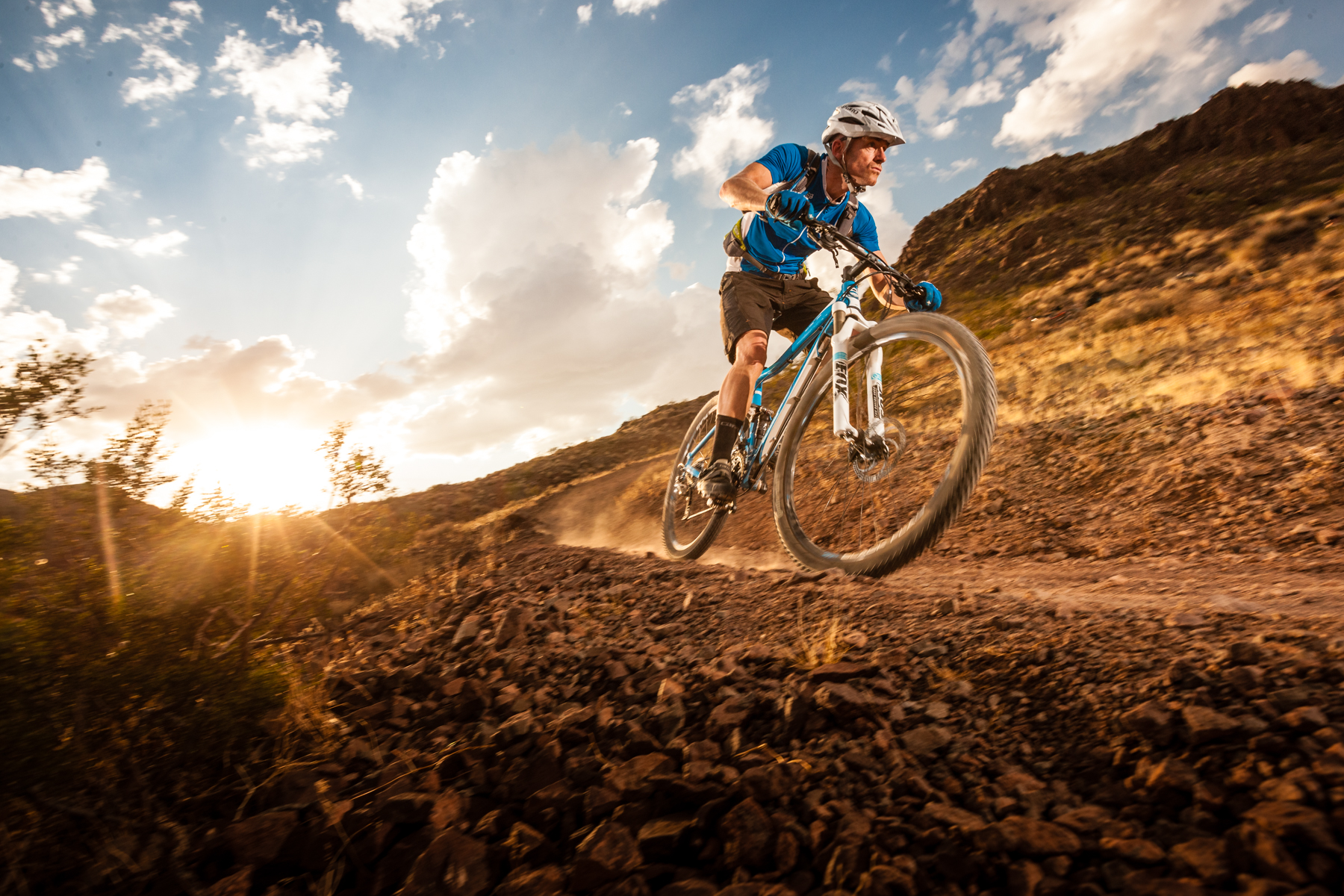
Guy Kesteven has been working on Bike Perfect since its launch in 2019. He started writing and testing for bike mags in 1996. Since then he’s written several million words about several thousand test bikes and a ridiculous amount of riding gear. He’s also penned a handful of bike-related books and he reviews MTBs over on YouTube.
Current rides: Cervelo ZFS-5, Specialized Chisel, custom Nicolai enduro tandem, Landescape/Swallow custom gravel tandem
Height: 180cm
Weight: 69kg
